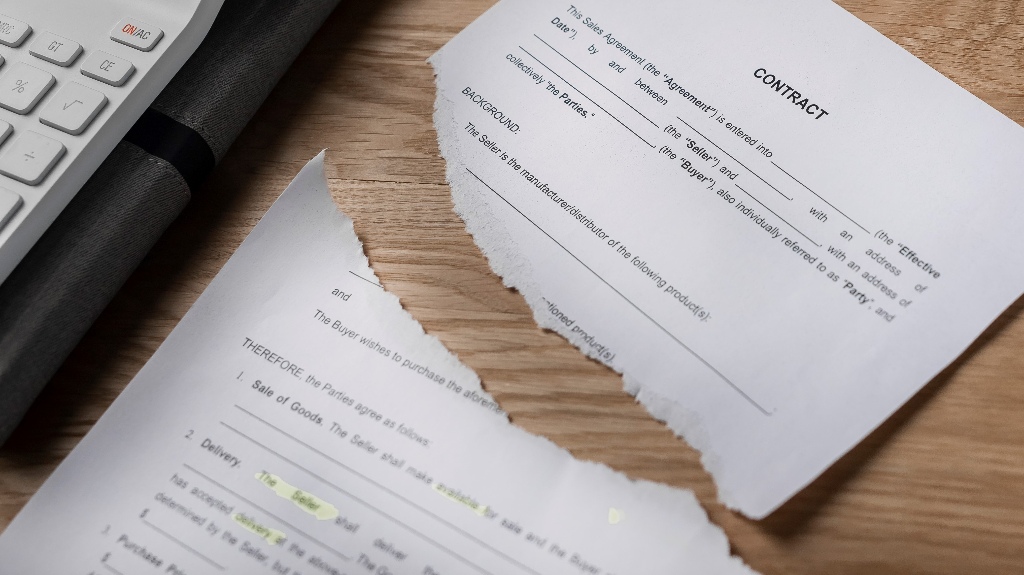
Breach of contract is one of the most common types of commercial litigation businesses encounter. Whether you are a small business owner or part of a larger corporation, understanding how breach of contract claims work is essential to navigating legal disputes. This blog will walk you through the fundamental elements of a breach of contract, explain common defenses, and highlight strategies businesses can use when dealing with such claims.
What Constitutes a Contract?
A contract is a legally binding agreement between two or more parties. For a contract to be valid, it must contain certain key elements: an offer, acceptance, consideration, and mutual intent to be bound.
- Offer: One party must propose a specific arrangement.
- Acceptance: The other party must agree to the terms of the offer.
- Consideration: There must be something of value exchanged, such as money, goods, or services.
- Mutual intent to be bound: Both parties must have the intention to create a legally enforceable agreement.
Without these elements, there is no valid contract, and thus no grounds for a breach.
Types of Breaches
Once a valid contract is in place, it is essential to understand the types of breaches that can occur. There are generally two categories:
- Material Breach: A material breach is a significant violation of the contract, one that affects the fundamental purpose of the agreement. For example, if a supplier fails to deliver goods or services that are essential to the contract’s completion, it can be considered a material breach. In such cases, the non-breaching party may be entitled to terminate the contract and seek damages.
- Immaterial Breach: An immaterial breach, also known as a minor breach, occurs when one party fails to perform a small portion of their contractual obligations but does not undermine the entire contract. For example, if a supplier delivers goods a few days late, it may constitute an immaterial breach. In these cases, the non-breaching party may still be required to perform their obligations and seek only partial damages.
Defenses to Breach of Contract
There are several defenses a party can use to avoid liability in a breach of contract claim:
- Impossibility of Performance: If an unforeseen event makes it impossible to perform the contract, such as a natural disaster, a party may claim they are not liable for the breach.
- Impracticality: If fulfilling the contract becomes significantly more expensive or difficult than originally anticipated, a party may invoke impracticality as a defense.
- Force Majeure: Similar to impossibility, force majeure refers to events outside a party’s control (e.g., war, pandemics) that make fulfilling the contract impossible or impractical.
Damages in Breach of Contract Cases
When a breach occurs, the non-breaching party is entitled to seek damages. There are several types of damages available:
- Compensatory Damages: These are intended to compensate the non-breaching party for the actual loss they incurred as a result of the breach. This may include lost profits or additional costs incurred to mitigate the damage.
- Consequential Damages: These damages compensate for losses that occur as a direct result of the breach but are not immediately caused by it. For example, if a breach of contract delays production, consequential damages might cover lost sales due to the delay.
- Punitive Damages: In rare cases, punitive damages may be awarded to punish the breaching party for malicious conduct. These are typically only applicable in cases of fraud or egregious misconduct.
Legal Remedies and Dispute Resolution
Litigation is not always the best or most cost-effective route for resolving a breach of contract dispute. Many businesses now opt for alternative dispute resolution (ADR) methods, such as mediation or arbitration. These methods can save time and money by avoiding lengthy court battles.
- Mediation involves a neutral third party facilitating a discussion to help the parties reach a settlement.
- Arbitration is more formal, where an arbitrator makes a binding decision after reviewing the case.
Both of these methods allow businesses to settle disputes outside of the courtroom and may lead to quicker resolutions with less expense.
A breach of contract can have significant consequences for businesses. But understanding the essential elements, types of breaches, available defenses, and possible remedies can help minimize risks. Whether you’re navigating a breach or defending against one, seeking legal guidance is crucial. If you need help protecting your business and managing contract disputes, contact our law firm today to discuss your case.
Related Posts:
Understanding the Discovery Process in Commercial Litigation
